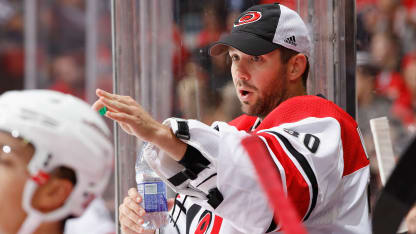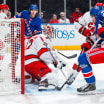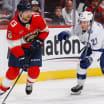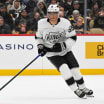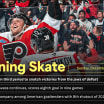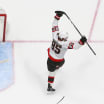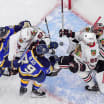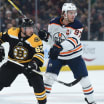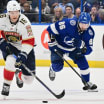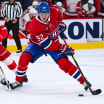Some goalie coaches believe the job is better suited to a technically sound, more conservative positional goaltender who plays with less backward flow and movement. Those tendencies are more reliant on the rhythm, timing and reads that are hard to maintain during long gaps between game action, and harder to simulate during the practices in between.
St. Louis Blues backup Carter Hutton isn't buying into a lack of rhythm as an excuse, but he does believe mental determination is the key.
"Everyone always says the more you play, the better you can get in a rhythm, whereas I don't believe in that at all," said Hutton, who averaged 22 starts in his first four full NHL seasons and has a .937 save percentage in six starts and eight appearances this season. "We have so much time to practice, but we come from this school of thought that you need to play to be in rhythm. I think you can set yourself up to be in a rhythm with the way you practice, the way you train, the way you prepare. Your head controls a lot of that; the way we think and prepare. Do we prepare to succeed or do we prepare to fail? I think a lot of guys go into games thinking, 'Oh, I haven't played in a few weeks, I am not going to be feeling it.' It's all mental."
Hutton, 31, has learned what he needs to focus on when he isn't playing.
"For me, it's all about seeing pucks," Hutton said. "That's the biggest thing: you face a ton of good shots in practice but in a game guys aren't shooting any harder, it's just that everything around [the shot] is going on faster, so your eyes have to pick things up quicker, fight through traffic quicker. So, I try to see a ton of shots in practice. I do a lot of one-timers, things that are game-like, where I can track pucks, and then, off ice, do a lot of eye exercises to keep myself engaged."
